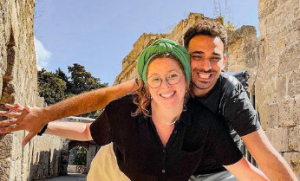It’s sometimes difficult to determine what’s been altered while browsing photographs on social media. Would a statement that the post had been screened or changed, on the other hand, assist in boosting users’ self-esteem? In Norway, new legislation will go into effect that will make it illegal for social media influencers to publish altered photographs without disclosing what they’ve changed in them.
As part of an effort to “reduce body pressure” among youngsters, the regulations will apply to all paid posts across all social media sites.
“Among other things, a duty is introduced to mark retouched or otherwise manipulated advertising when this means that the person’s body in the advertisements deviates from reality in terms of body shape, size and skin,” the Norway government’s official website stated.
Also Read | New documentary unravels story of influencer who lied about having cancer
“We need this law”
Madeleine Pedersen, an Instagram influencer from Moss, Norway, told Radio 1 Newsbeat that the regulations should be amended because it’s “about time,” and that she believes the law would prevent young people from comparing themselves to unrealistic images.
“There are so many people that are insecure about their body or face,” she told Newsbeat. “I have struggled with body issues because of Instagram, back in the day. The worst part is that I don’t even know if the other girls I looked up to did edit their photos or not. That’s why we all need answers – we need this law.”
Madeleine doesn’t “feel the need” to alter her appearance in her posts, which have an audience of over 90,000 people.
Also Read | TikTok star Charli D’Amelio responds after landing in twerking controversy
Norway’s Marketing Act was amended to include the new requirements. Although when they go into effect will be determined by the King. According to the government’s website, the goal is to assist in alleviating societal pressure due to “idealised people in advertising”.
It will encompass filters, such as those found on Snapchat, as well as digital changes to body form and size. It impacts anybody who uses social media to promote a sponsored product, which includes many influencers, actresses, and singers.
Madeleine believes that the new restrictions will encourage influencers in Norway to alter their photos less. “They will be too embarrassed to admit it, so they will edit less, as they should,” she told BBC.
Also Read | Meet 76-year-old OG influencer who is killing it on Instagram with her moves
“Step in the right direction”
Eirin Kristiansen, a 26-year-old influencer from Bergen, Norway, agrees that the new rule is a “step in the right direction,” but she believes it isnot very well thought out”.
“To me, it seems more like a shortcut to fix a problem that won’t really do any improvement,” Eirin told Newsbeat. “Mental health issues are caused by so much more than an edited photo, and another badge on advertiser’s photos won’t change how young girls and boys truly feel, in my opinion.”
The majority of under 18-year-olds felt social media pictures were “extremely influential” on their body image, according to a survey conducted by UK MPs last year. Only 5% of respondents under the age of 18 indicated they would not consider altering their look by dieting or having surgery.
Also Read | Robert Downey Jr. has unfollowed Avengers star cast on Instagram. Know why
“Social media is here to stay”
Em Clarkson, a London-based influencer, thinks that we must be cautious about what we see. The 26-year-old frequently speaks out against the negative effects of filters and editing applications. But she hadn’t always been like this.
“When I was 16 I downloaded Photoshop and learnt how to Photoshop myself so I could upload this bikini picture of me to Facebook,” she told Newsbeat.
Em says it was difficult for her when she was younger as she would compare herself to women she saw on magazine covers, which she did around twice a week.
She is concerned, though, for younger Instagram users who are exposed to altered photos “50, 100 times a day, every day.”
Also Read | Mom who scolded daughter for buying Rs 35,000 belt dons the same in style
MPs in the United Kingdom presented a measure that would make it mandatory for individuals to declare altered photos, but it was never passed. Em believes the UK government should take the problem “more seriously” and enact legislation similar to Norway’s.
“All the indicators are showing mental health problems, anxiety disorders, eating disorders, it’s all on the rise,” she said.






